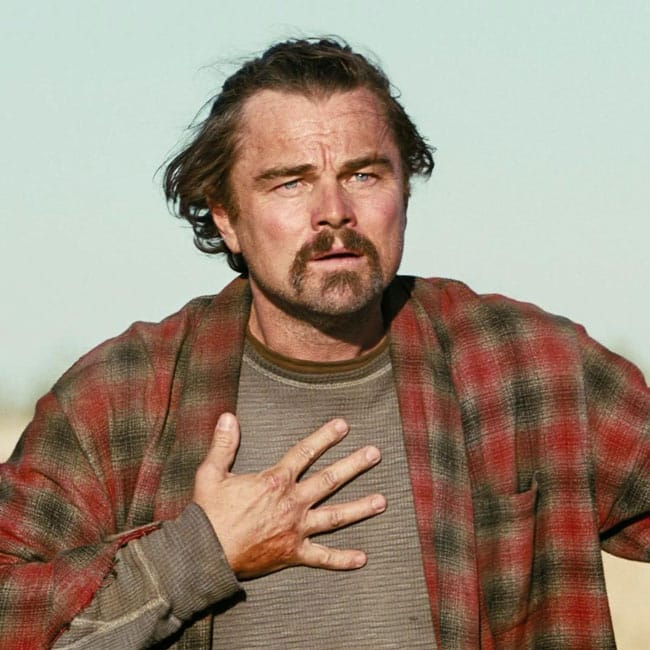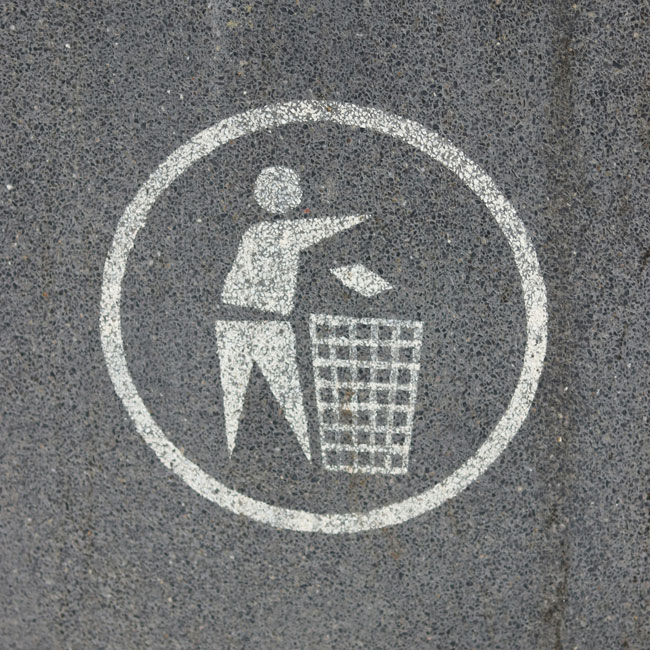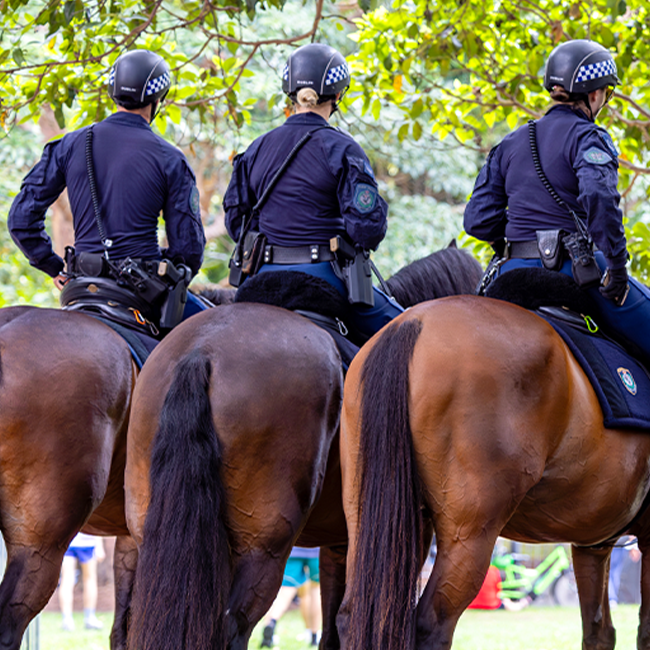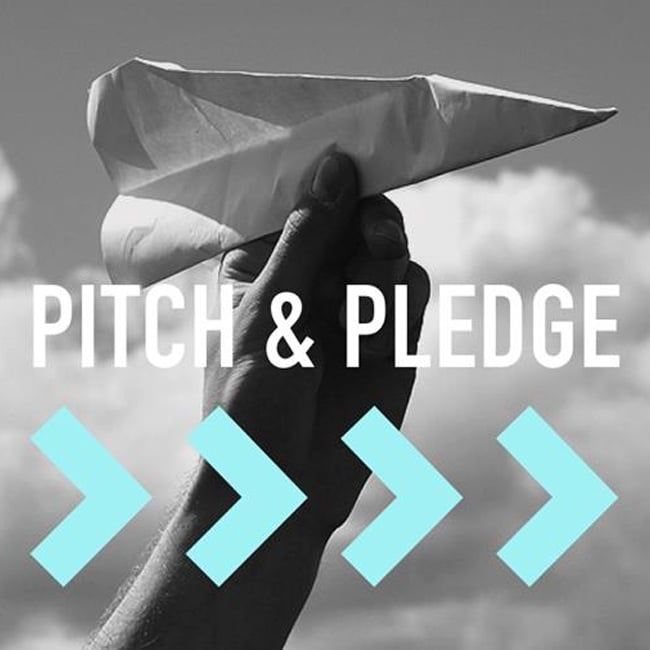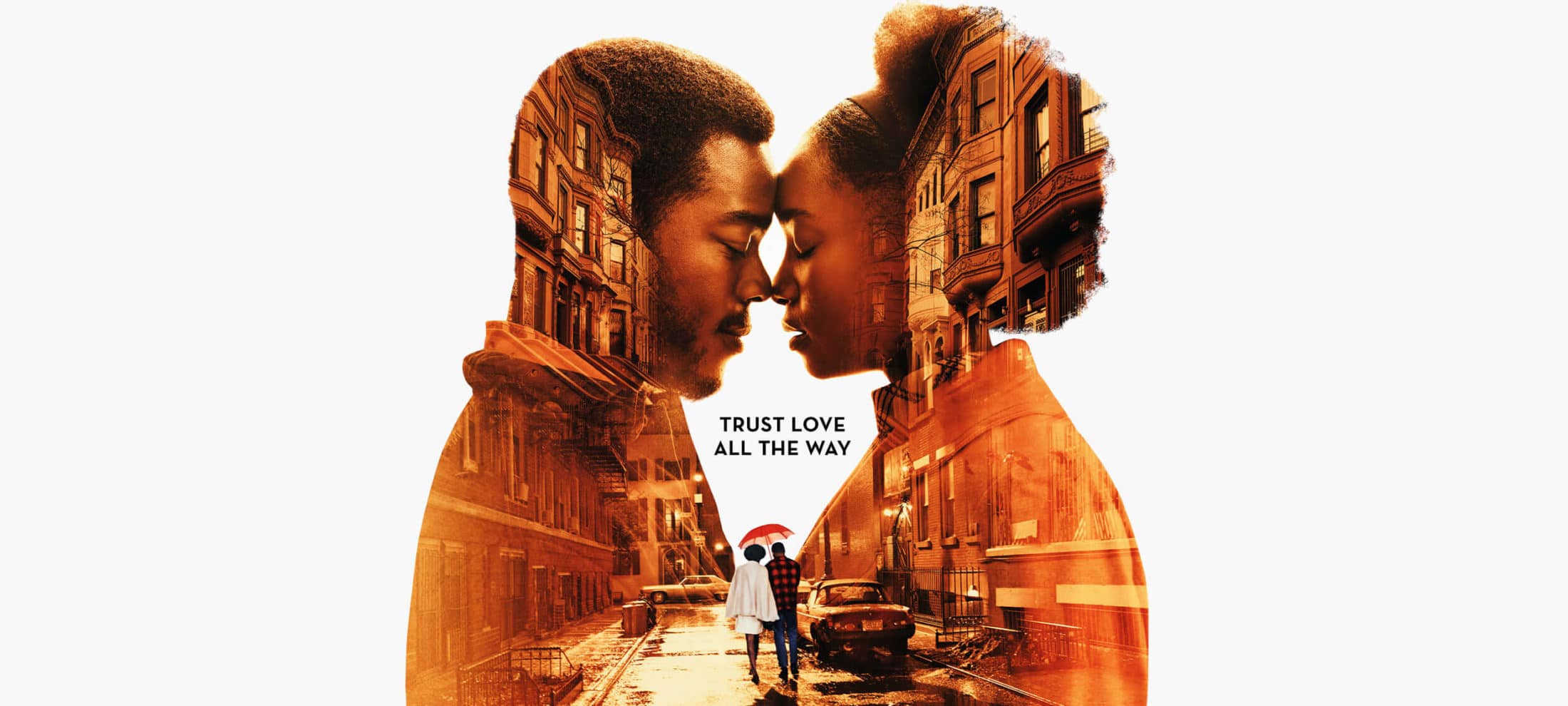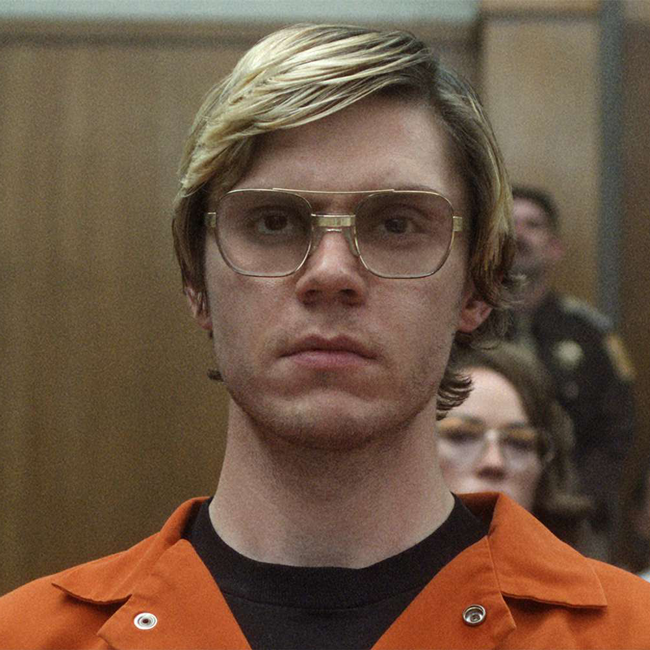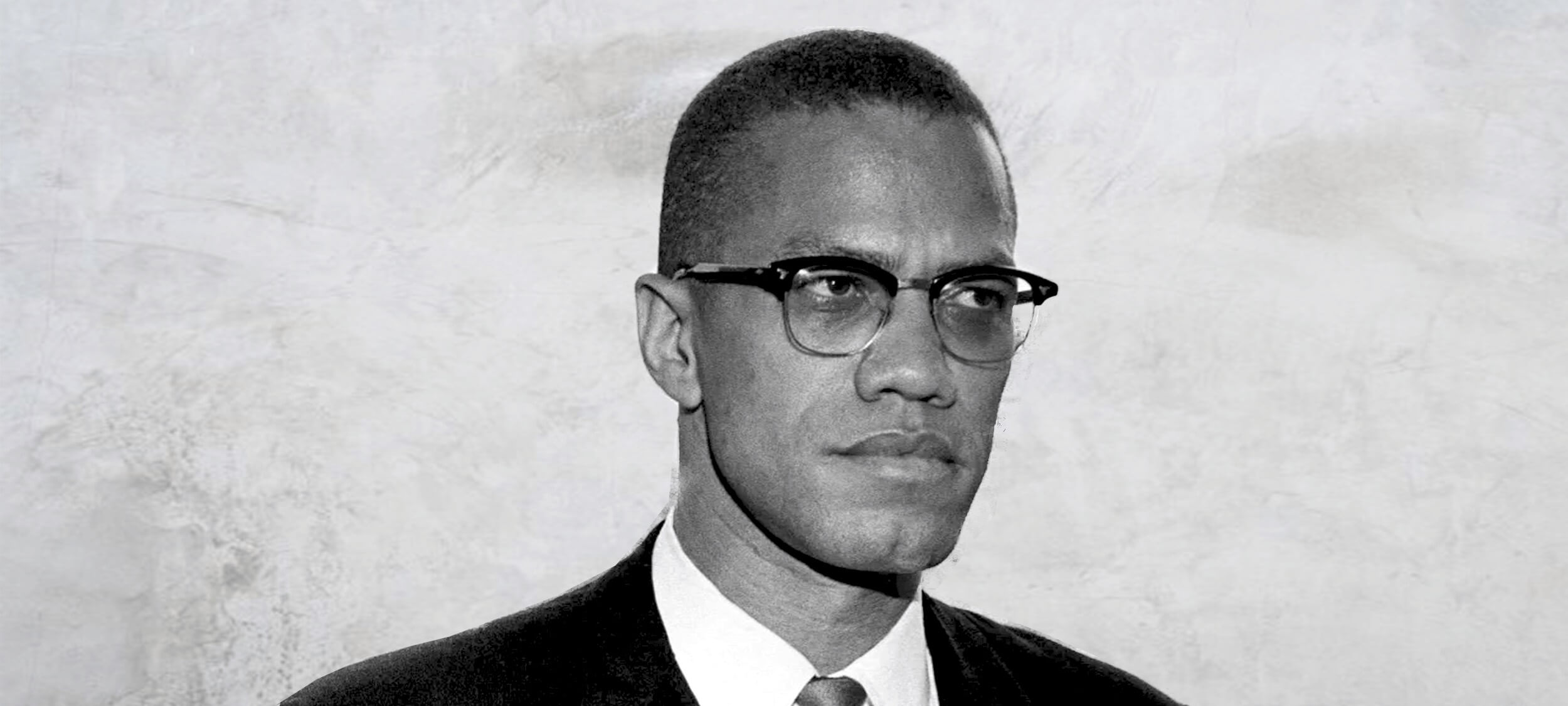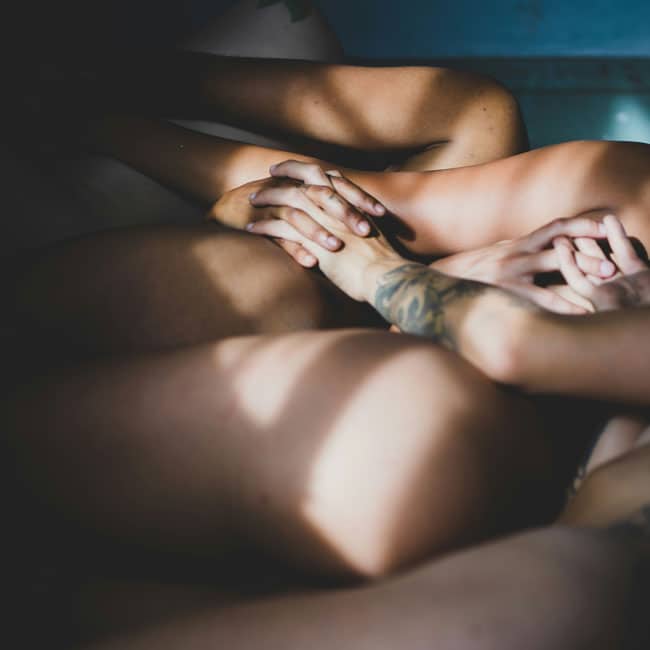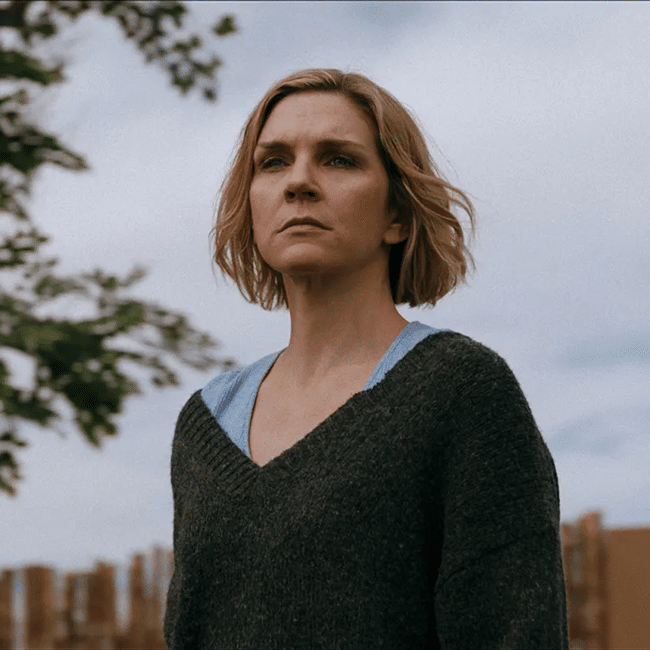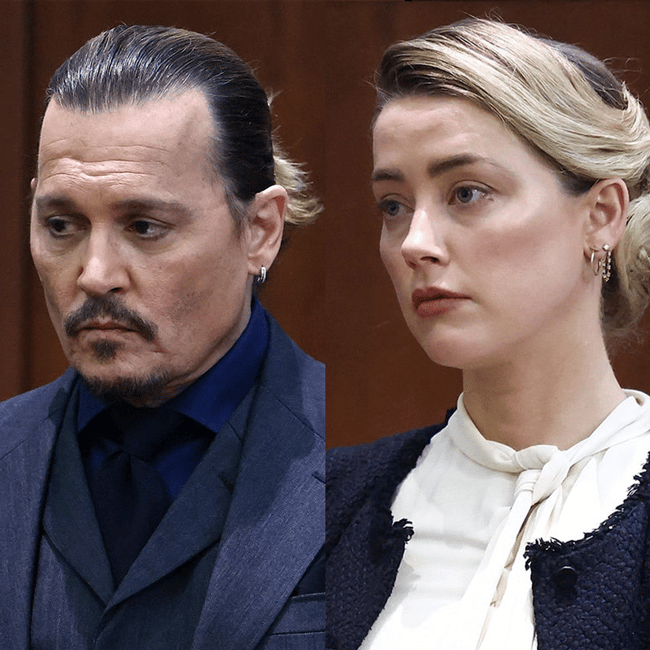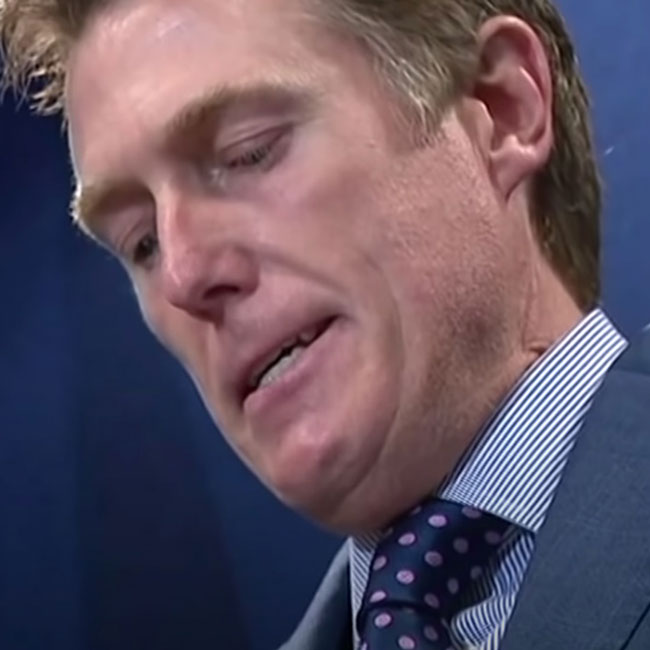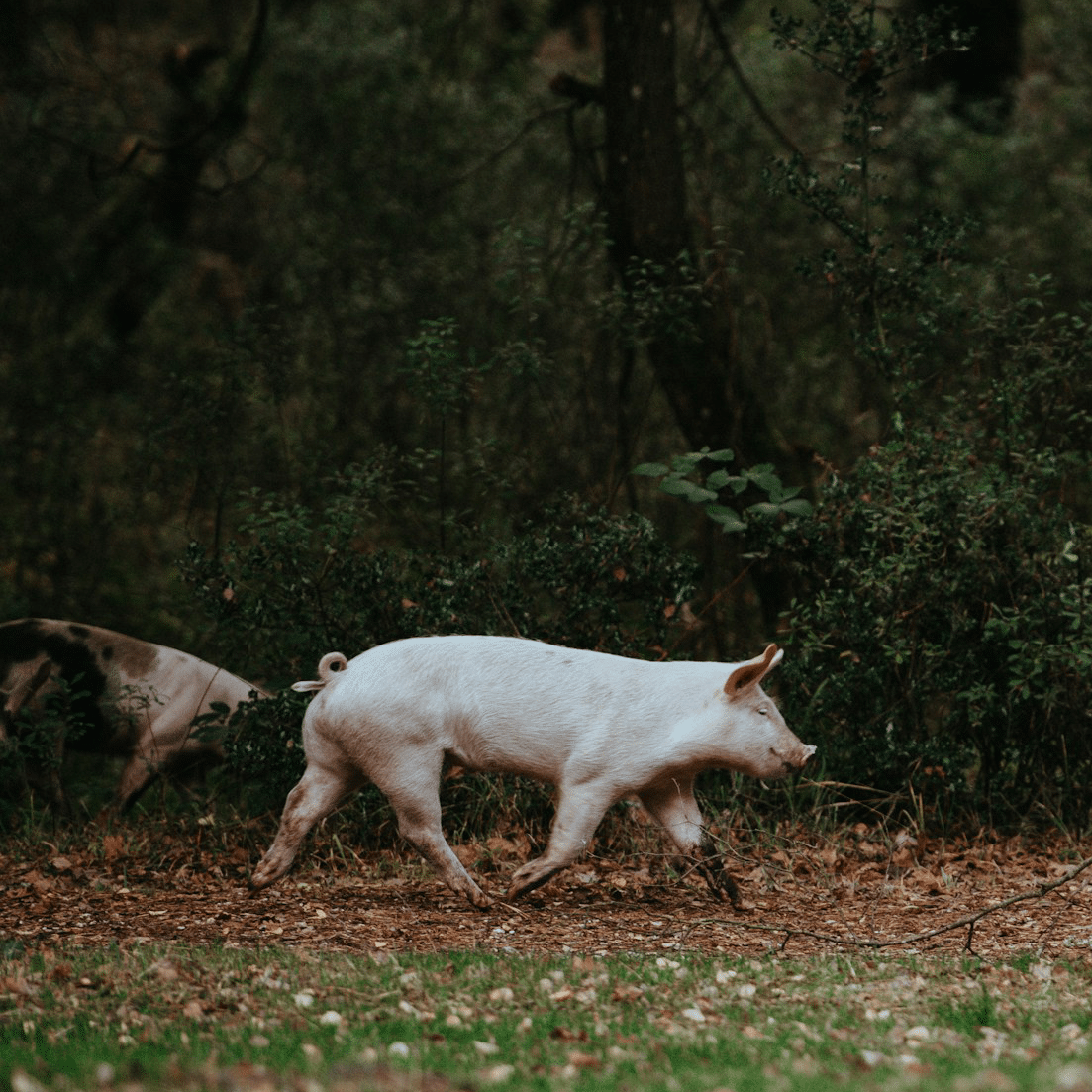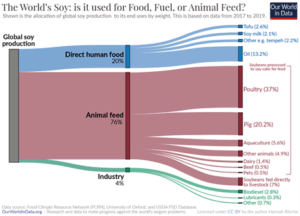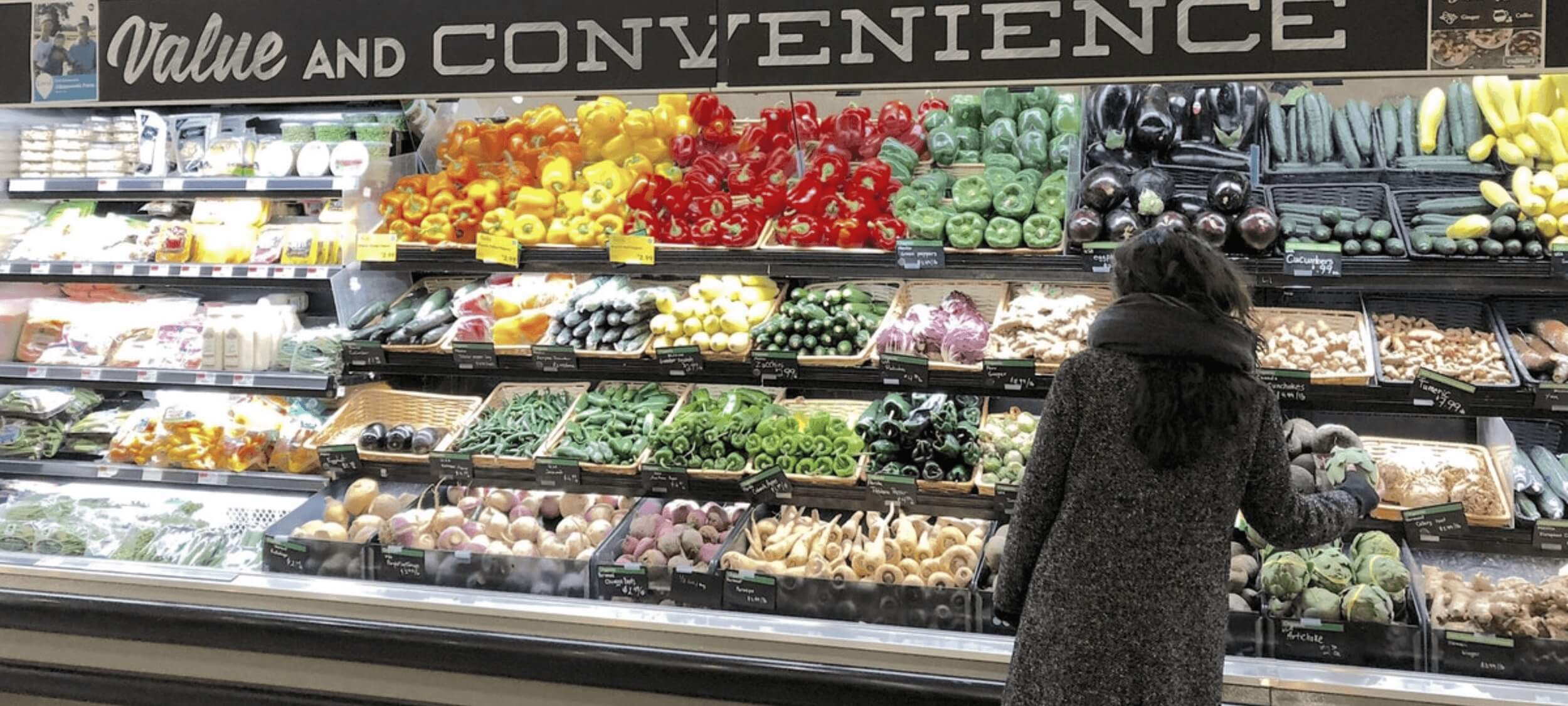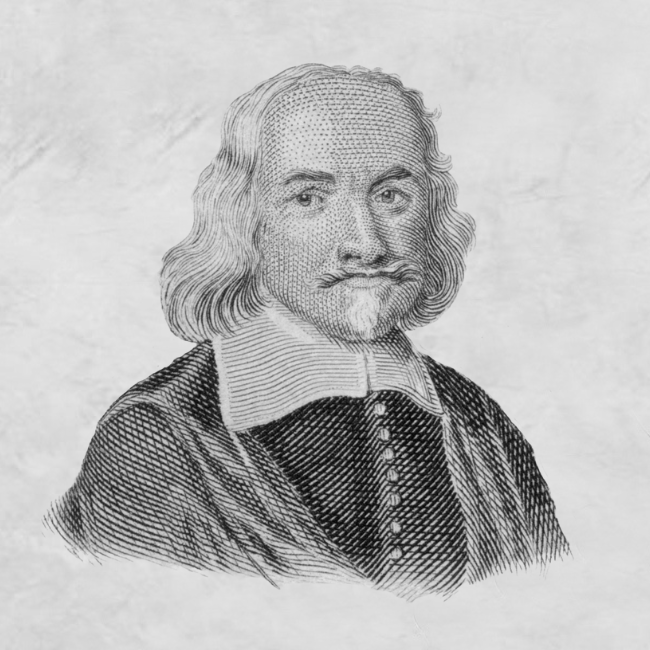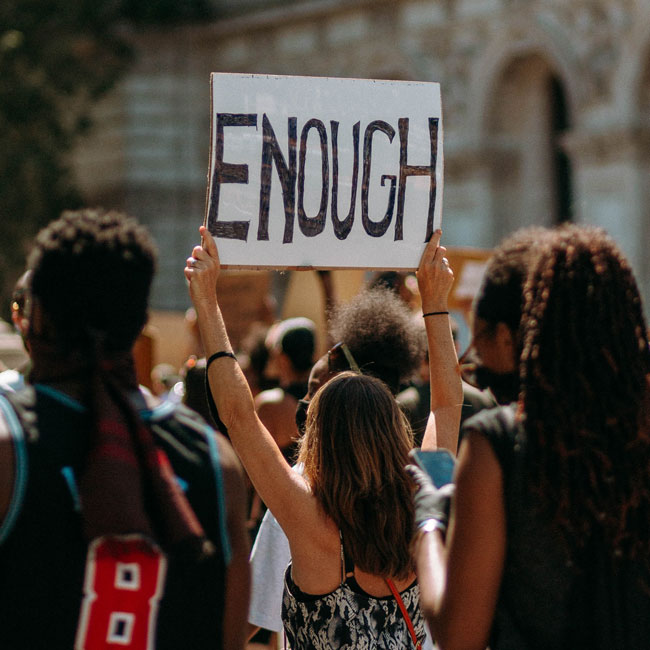The personal vs the political: Resistance in One Battle After Another
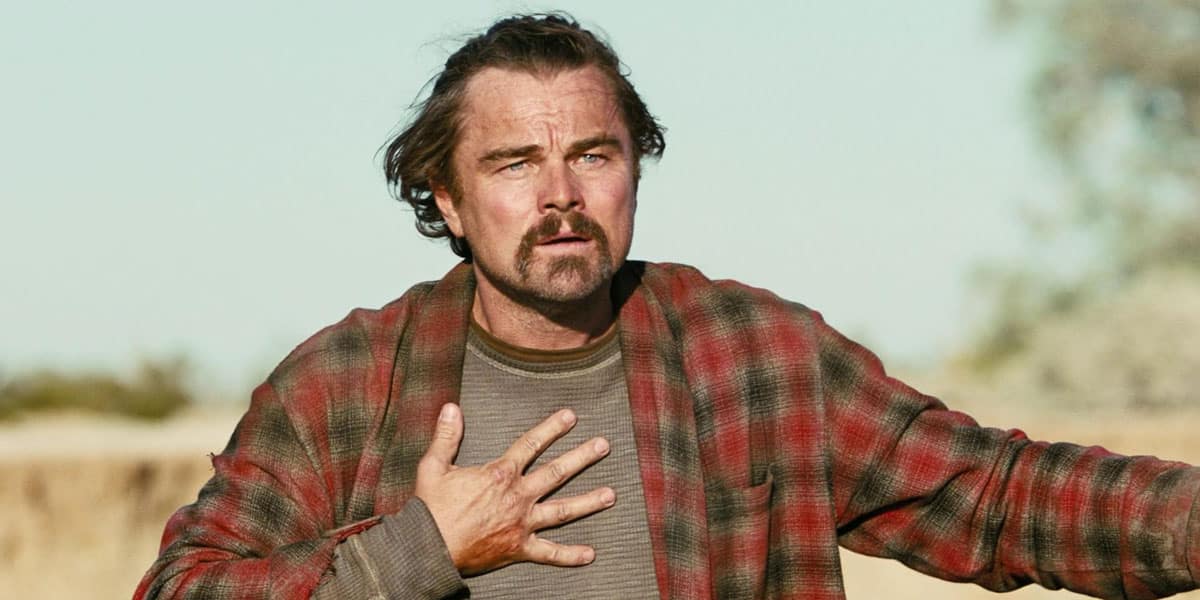
The personal vs the political: Resistance in One Battle After Another
Opinion + AnalysisSociety + CulturePolitics + Human RightsRelationships
BY Joseph Earp 2 MAR 2026
Paul Thomas Anderson’s One Battle After Another, widely considered to be the frontrunner in the Oscars race for Best Picture, shouldn’t really work.
It’s set in the future (kind of), and its characters rail against a government that the film doesn’t really try to draw or explain. Its tone freewheels about the place from black comedy to action film. Some of the performances, like Teyana Taylor’s turn as a revolutionary and reluctant mother, are tender and human; others, like Sean Penn’s vicious army officer, border on caricature.
But despite such a vast mish mash of ideas and styles, at its core the film explores the dangers of a perceived disconnect between the personal and the political – more broadly, how we choose to respond to disenfranchisement through our personal morality and interpersonal relationships.
Macro and micro
Films about politics tend to fall into one of two camps. They either pick the broadest possible canvas, looking at societal issues from a top-down view – take Oliver Stone’s JFK, or more recently, Adam McKay’s Vice. Or, they go micro, and fixate on the lives of individuals caught up in times of political unrest – Costa-Gavras’ Missing, or the spate of “serious men looking through files” films, with All The President’s Men being the clearest example. The focus of the former type of film is history itself; the focus of the second type of film is the people who are shaped by history.
Anderson’s film, however, sidesteps this binary entirely, by casting the personal as inherently political. In his film, politics isn’t something that happens outside the characters’ houses, out in the “real world”. Instead, every single personal relationship is fraught with societal implications, and its characters are constantly juggling what is good “for the cause”, and what is good for their own lives.
Take the strained relationship between Leonardo DiCaprio’s frazzled revolutionary, Bob, and his daughter Willa (Chase Infiniti). Bob, once a firm believer in violent insurrection, has become addled by alcohol and pot, adrift in a world that he doesn’t understand. Willa, by contrast, is fully versed in that world; her group of friends freely explore their gender, much to Bob’s confused chagrin. Father and daughter squabble constantly, each subtly casting the other as ill-equipped to deal with the world and its horrors. Bob thinks that Willa is inherently vulnerable and naive; Willa thinks that Bob is a dusty relic of the past.
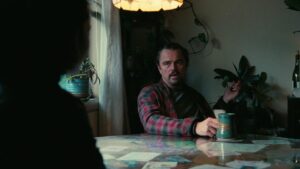
Such personal clashes are stand-ins for a much broader clash concerning different approaches to revolution. Their ideologies aren’t snipped off from their day-to-day lives. Politics is something that they both embody, so it influences their every interaction; their every word. As a result, their beliefs cause constant friction in their home – and as their views stagnate, so too does their relationship.
Violence versus humanism
It’s not just Willa and Bob who struggle in this way, either. One of the film’s key plot strands is a relationship of sorts, conducted between Perfidia Beverly Hills (Taylor) and Col. Steven J. Lockjaw (Penn). Ideologically, the two are as opposed as could be imagined; she’s a revolutionary, he’s a racist fascist. But interpersonally, they are constantly drawn together, an attraction that sits at cross-purposes to their views.
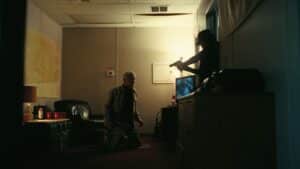
They’re not entirely different, however. Lockjaw has sacrificed any closeness with his fellow human beings – Perfidia included – in the pursuit of a sad, violent fascist wet-dream. His political ideology has led to a complete disconnection from those around him, sending him on a hateful rampage that culminates in him violently threatening his own daughter. And in Perfidia’s case, a belief that the political must come above and beyond the personal leads her to abandon her own family, and sell out her friends.
One Battle After Another makes it clear that Lockjaw’s warped understanding of the world is far more harmful than Perfidia’s – it doesn’t completely equate the two. But nonetheless, Anderson does consistently make a light mockery of those who abandon those closest to them in favour of “the cause”, whatever that might be.
There’s no victory in becoming a “perfect revolutionary” who doesn’t know how to interact with friends, parents, or lovers.
Moreover, he doesn’t seem to believe such a thing is even possible. When we meet Bob, for instance, his politics are good – he has not stopped stoking the fires of resistance and revolution – but his home life is a mess. As a result, he’s a figure of sad comedy; constantly befuddled, clad in his dressing gown, unable to meaningfully engage with a world that is filled with other human beings, not just revolutionary cries.
And in this way, we understand “politics” as just a way of describing the organisation of human lives – and so any political ideology that forgets about the value of a single human connection is inherently flawed. One Battle After Another advocates for a type of revolution that tackles the personal and the political, by acknowledging that they are one and the same thing.
Freedom is found at the film’s conclusion, not just because Willa is now a fully-fledged revolutionary, using a pirate radio to find new battles to fight. It’s found because she and Bob have now come to a place of true peace and understanding with one another. By contrast, Perfidia and Lockjaw fail to find such healing – Perfidia disappears from the film entirely, and Lockjaw ends up gassed to death by the very individuals that he considered his compatriots. Their ends are lonely, in a very literal sense.
In this way, Anderson reminds us that the macro is made up of the micro. As the old saying by activist Mariame Kaba goes, hope is a discipline that requires practice in every interaction, and in every sphere, whether we’re dealing with the broader world, or those closest to us. What changes tyranny? Not just the big battles. But the little ones too: one after another.

BY Joseph Earp
Joseph Earp is a poet, journalist and philosophy student. He is currently undertaking his PhD at the University of Sydney, studying the work of David Hume.
Ethics in your inbox.
Get the latest inspiration, intelligence, events & more.
By signing up you agree to our privacy policy
You might be interested in…
Opinion + Analysis
Relationships
We need to talk about ageism
Opinion + Analysis
Relationships
Get mad and get calm: the paradox of happiness
Opinion + Analysis
Relationships
Ask an ethicist: Should I tell my student’s parents what they’ve been confiding in me?
Opinion + Analysis
Health + Wellbeing, Relationships, Science + Technology
Hallucinations that help: Psychedelics, psychiatry, and freedom from the self
Our dollar is our voice: The ethics of boycotting
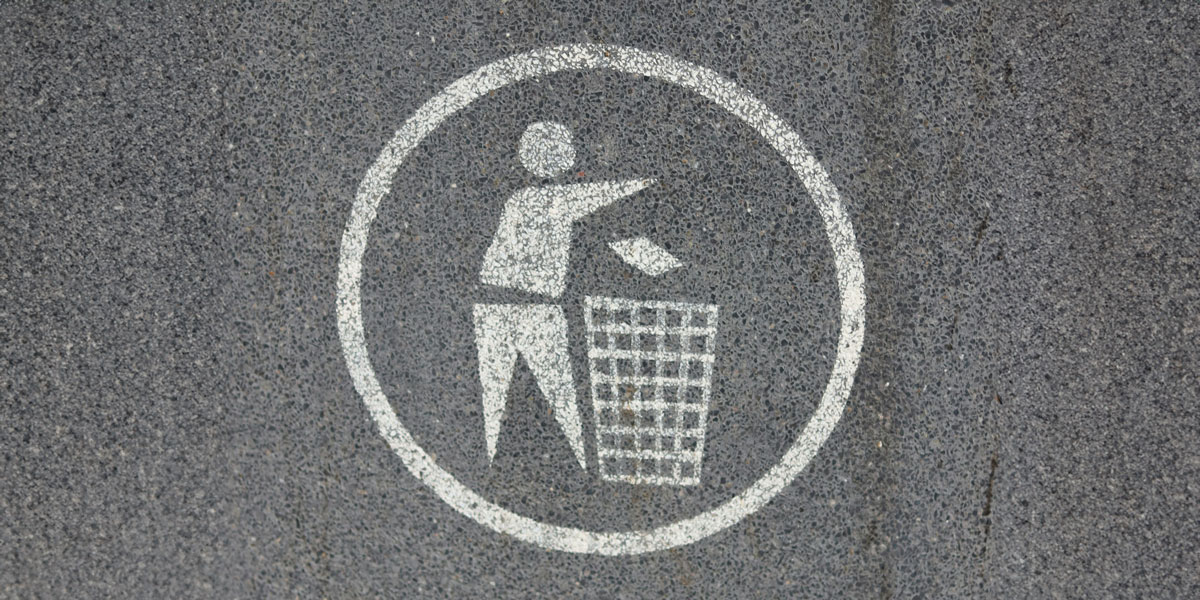
Our dollar is our voice: The ethics of boycotting
Opinion + AnalysisPolitics + Human RightsBusiness + LeadershipSociety + Culture
BY Tim Dean 17 FEB 2026
Boycotts can be an effective mechanism for making change. But they can also be weaponised or harmful. Here are some tips to ensure your spending aligns with your values.
There I was, strolling through campus as an undergraduate in the 1990s, casually enjoying a KitKat, when I was accosted by a friend who sternly rebuked me for my choice of snack. Didn’t I know that we were boycotting Nestlé? Didn’t I know about all the terrible things Nestlé was doing by aggressively promoting its baby formula in the developing world, thus discouraging natural breastfeeding?
Well, I did now. And so I took a break from KitKats for many years. Until I discovered the boycott had started and been lifted years before my run-in with my activist friend. As it turned out, a decade prior to my campus encounter, Nestlé had already responded to the boycotters’ concerns and had subsequently signed on to a World Health Organization code that limited the way infant formula could be marketed. So, while my friend was a little behind on the news, it seemed the boycott had worked after all.
Boycotts are no less popular today. In late 2025, dozens of artists pulled their work from Spotify and thousands of listeners cancelled their accounts after discovering that the company’s CEO, Daniel Ek, invested over 100 million Euros into a German military technology company that is developing artificial intelligence systems. In 2023, Bud Light lost its spot as the top-selling beer in the United States after drinkers boycotted it following a social media promotion involving transgender personality, Dylan Mulvaney. The Boycott, Divestment and Sanctions (BDS) movement has been promoting boycotts of Israeli products and companies that support Israel for over a decade, gaining greater momentum since the 2023 war in Gaza. And there are many more.
As individuals, we may not have the power to rectify many of the great ills we perceive in the world today, but as agents in a capitalist market, we do have power to choose which products and services to buy.
In this regard, our dollar is our voice, and we can choose to use that voice to protest against things we find morally problematic. Some people – like my KitKat-critical friend – also stress that we must take responsibility for where our money flows, and we have an obligation to not support companies that are doing harm in the world.
However, thinking about whom we support with our purchases puts a significant ethical burden on our shoulders. How should we decide which companies to support and which to avoid? Do we have a responsibility to research every product and every company before handing over our money? How can we be confident that our boycott won’t do more harm than good?
Buyer beware
Boycotts don’t just impose a cost on us – primarily by depriving us of something we would otherwise purchase – they impose a cost on the producer, so it’s important to be confident that this cost is justified.
If buying the product would directly support practices that you oppose, such as damaging the environment or employing workers in sweatshops, then a boycott can contribute to preventing those harms. We can also choose to boycott for other reasons, including showing our opposition to a company’s support for a social issue, raising awareness of injustices or protesting the actions of individuals within an organisation. However, if we’re boycotting something that was produced by thousands of people, such as a film, because of the actions of just one person involved, then we might be unfairly imposing a cost on everyone involved, including those who were not involved in the wrongdoing.
Boycotts can also be used threaten, intimidate or exclude people, such as those directed against minorities, ethnic or religious groups, or against vulnerable peoples. We need to be confident that our boycott will target those responsible for the harms while not impinging on the basic rights or liberties of people who are not involved.
There are also risks in joining a boycott movement, especially if we feel pressured into doing so or if activists have manipulated the narrative to promote their perspective over alternatives. Take the Spotify boycott, for example. It is true that Spotify’s CEO invested in a military technology company. However, many people claimed that company was supplying weapons to Israel, and that was a key justification for them pulling their support for Spotify. However, Helsing had no contracts with Israel and was, instead, focusing its work on the defence of Ukraine and Europe – a cause that many boycotters might even support.
Know your enemy
The risk of acting on misinformation or biased perspectives places greater pressure on us to do our own research, and it’s here that we need to consider how much homework we’re actually willing or able to do.
In the course of writing this article, I delved back into the history of the Nestlé boycott only to find that another group has been encouraging people to avoid Nestle products because it doesn’t believe that the company is conforming to its own revised marketing policies. Even then, uncovering the details and the evidence is not a trivial undertaking. As such, I’m still not entirely sure where I stand on KitKats.
While we all have an ethical responsibility to act on our values and principles, and make sure that we’re reasonably well informed about the companies and products that we interact with, it’s unreasonable to expect us to do exhaustive research on everything that we buy. That said, if there is reliable information that a company is doing harm, then we have a responsibility to not ignore it and should adjust our purchasing decisions accordingly.
Boycotts also shouldn’t last for ever; an ethical boycott should aim to make itself redundant. Before blacklisting a company, consider what reasonable measures it could take for you to lift your boycott. That might be ceasing harmful practices, compensating those who were impacted, and/or apologising for harms done. If you set the bar too high, there’s a risk that you’re engaging in the boycott to satisfy your sense of outrage rather than seeking to make the world a better place. And if the company clears the bar, then you should have good reason to drop the boycott.
Finally, even though a coordinated boycott can be highly effective, be wary of judging others too harshly for their choice to not participate. Different people value different things, and have different budgets regarding how much cost they are willing to bear when considering what they purchase. Informing others about the harms you believe a company is causing is one thing, but browbeating them for not joining a boycott risks tipping over into moralising.
Boycotts can be a powerful tool for change. But they can also be weaponised or implemented hastily or with malicious intent, so we want to ensure we’re making conscious and ethical decisions for the right reasons. We often lament the lack of power that we have individually to make the world a better place. But if there’s one thing that money is good at, it’s sending a message.

BY Tim Dean
Dr Tim Dean is a public philosopher, speaker and writer. He is Philosopher in Residence and Manos Chair in Ethics at The Ethics Centre.
Ethics in your inbox.
Get the latest inspiration, intelligence, events & more.
By signing up you agree to our privacy policy
You might be interested in…
Reports
Business + Leadership
Ethics in the Boardroom
Opinion + Analysis
Climate + Environment, Politics + Human Rights
Australia Day: Change the date? Change the nation
Opinion + Analysis
Business + Leadership
Managing corporate culture
Opinion + Analysis, READ
Politics + Human Rights
How to find moral clarity in Gaza
On policing protest
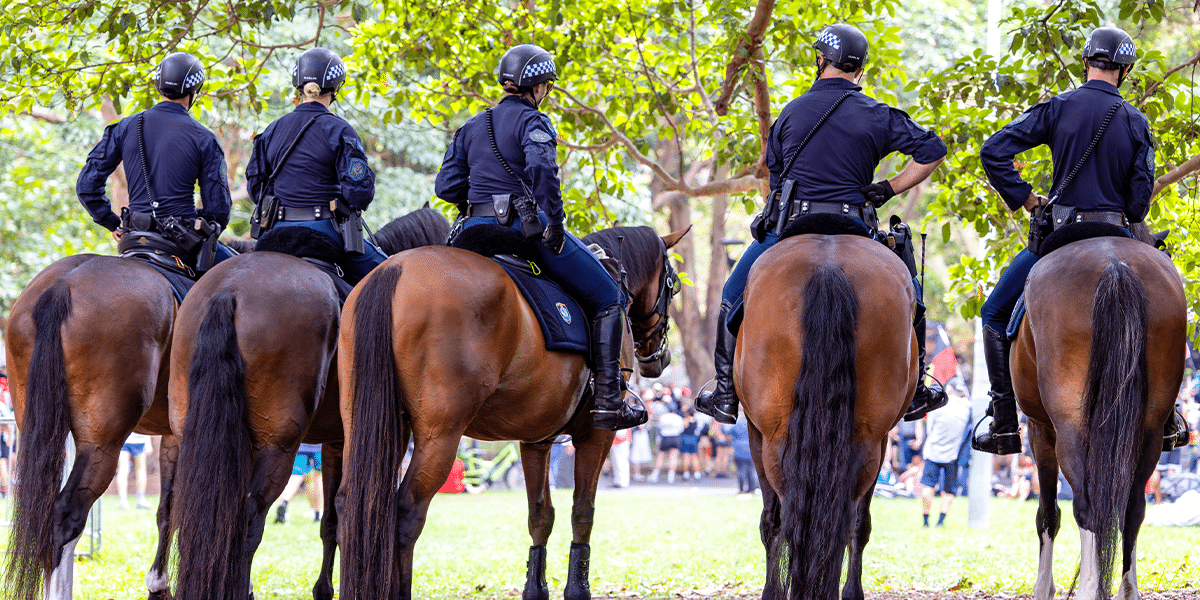
On policing protest
Opinion + AnalysisPolitics + Human RightsSociety + Culture
BY Simon Longstaff 16 FEB 2026
I was not there when police confronted people at Sydney Town Hall, protesting against the visit of Israeli President Herzog. So, the best I can do is offer a way of assessing what took place – once all of the evidence is before us.
A fundamental principle of policing is that it is most effective when practised with the consent of the community. With that consent in hand, police are accorded extraordinary powers that may not be exercised by ordinary citizens. Those powers include the right to use force in the discharge of their duties. However, these are not ‘unbridled’ powers. Rather, the use of force is hemmed in by a series of legal and ethical boundaries that must not be crossed.
The application of such boundaries is especially important when police are authorised to use lethal force. However, whether armed or not, the ethos of policing is supposed to be conditioned by two fundamental considerations.
First, all police in Australia exercise what is known as the ‘original authority of the constable’. This is a special kind of authority intended to ensure that police uphold the peace in an even-handed manner, without regard to a person’s wealth, status or office. Originally conceived in medieval times, it ensures that all are equal before the law. One aspect of this ‘original authority’ is the right (or, perhaps, the duty) to exercise discretion when employing the special powers conferred on police. It is for this reason that there is a general expectation that police should warn rather than punish people when that would be sufficient to achieve the proper ends of law enforcement.
And what are those ends? To the surprise of many (including some police) the role of policing is not to apprehend criminals so that they may be brought before the courts. Nor is it simply to ‘enforce the law’. Both of those elements of policing are important. However, they are in service of a more general purpose which is to uphold the legal and moral rights of citizens (only some of which are codified in law). This is why society frowns on the actions of those rare police who, say, plant evidence on a suspect in hope of proving their presumed guilt. You cannot uphold the legal and moral rights of citizens by violating the legal and moral rights of citizens! It is only when police act in a manner consistent with their overarching purpose that the community extends the trust required for policing to be maximally effective.
The main point to note here is that the best way to prevent crimes and other harms is for communities to be intolerant of those who engage in harmful (and especially criminal) conduct. In turn, the communities that most trust their police are also those most intolerant of crime and other antisocial behaviour. For the avoidance of doubt, let me make it clear that I do not consider peaceful protesting to be ‘antisocial behaviour’. Rather, it plays a vital role in a vibrant democratic society.
The second basic fact that conditions policing is related to the asymmetry of power between police and citizens. The most obvious sign of that asymmetry is that, with only a few exceptions, only police may be armed in the course of daily civic life. However, with great power comes great responsibility. In this case, the use of force, by police, must be proportionate and discriminate. That is, force may only be applied to the minimal degree necessary to secure the peace.
Policing is dangerous work. But beyond the risk of physical harm, police are often taunted and insulted – especially by seasoned provocateurs who are trying to bait police to lose control. That is why police require training to resist the all-too-human tendency towards self-protection or retaliation. Again, this is essential to maintaining community trust and consent.
The public needs to be convinced that police have the training and discipline to apply minimal force – no matter what the provocation.
Given all of the above, what questions might we ask about the way police engaged with protesters gathered at the Sydney Town Hall? Did police exercise discretion in favour of the citizens to whom they are ultimately accountable? Was their use of force discriminate and proportional? Did the police exercise maximum restraint – no matter what the provocation?
As to where we might go from here, I think that we would all be well served if the politicians who set the laws within which police operate and the leadership of NSW police all stopped for a moment to ask, “Will the thing we next do build or undermine the trust and consent of the community as a whole?”.

BY Simon Longstaff
Simon Longstaff began his working life on Groote Eylandt in the Northern Territory of Australia. He is proud of his kinship ties to the Anindilyakwa people. After a period studying law in Sydney and teaching in Tasmania, he pursued postgraduate studies as a Member of Magdalene College, Cambridge. In 1991, Simon commenced his work as the first Executive Director of The Ethics Centre. In 2013, he was made an officer of the Order of Australia (AO) for “distinguished service to the community through the promotion of ethical standards in governance and business, to improving corporate responsibility, and to philosophy.” Simon is an Adjunct Professor of the Australian Graduate School of Management at UNSW, a Fellow of CPA Australia, the Royal Society of NSW and the Australian Risk Policy Institute.
Ethics in your inbox.
Get the latest inspiration, intelligence, events & more.
By signing up you agree to our privacy policy
You might be interested in…
Explainer
Politics + Human Rights
Ethics Explainer: The Panopticon
Opinion + Analysis
Society + Culture
We are pitching for your pledge
Opinion + Analysis
Politics + Human Rights
How we should treat refugees
Opinion + Analysis
Politics + Human Rights, Relationships, Society + Culture
Film Review: If Beale Street Could Talk
What it means to love your country
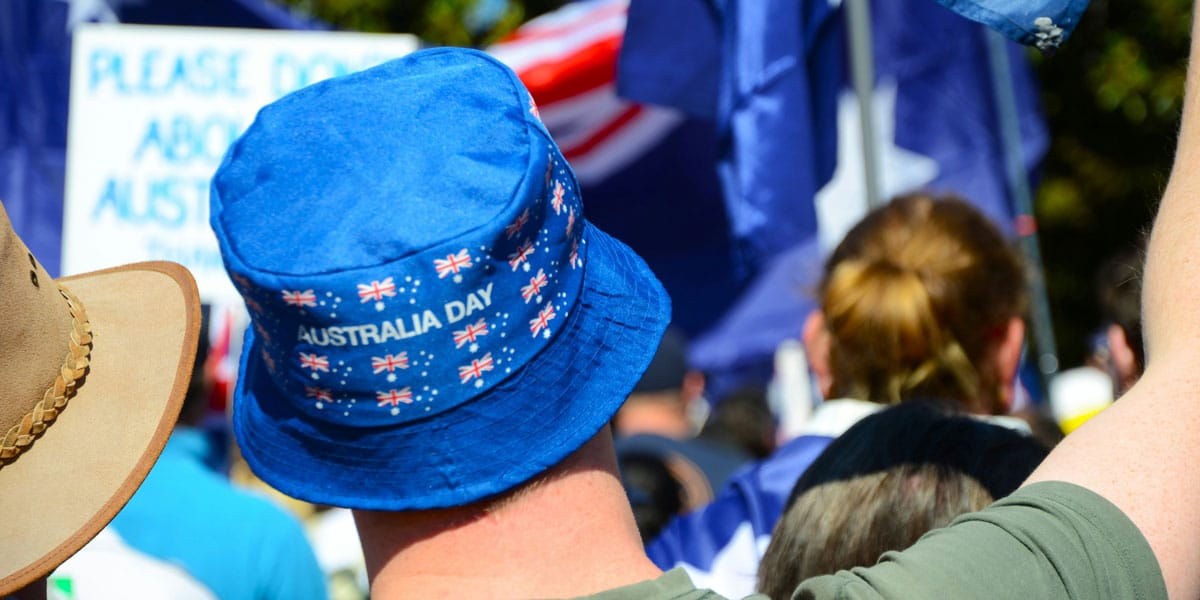
What it means to love your country
Opinion + AnalysisSociety + CulturePolitics + Human Rights
BY Marlene Jo Baquiran 4 FEB 2026
The idea of patriotism has become increasingly contentious in Australia, particularly on January 26, with much wariness and controversy over what to call the day itself.
January 26 is a reopening of the deep wound of colonisation for many Indigenous Australians. It can also be, to a lesser extent, a confusing day to be an Australian patriot who is simultaneously ashamed of their country’s colonial past.
Australia’s colonial roots have always loomed large in its young history, but it is helpful to know that the experience of being conflicted about one’s allegiance to country is not new.
In 1943, the Jewish-heritage French philosopher Simone Weil wrote her last text dissecting the difficulty of patriotism while in WWII France. France had built its modern identity on Enlightenment ideals of liberty, equality and universal human rights. Yet at Weil’s time of writing, it was actively building a colonial empire and collaborating with the German fascist state which violated these principles.
In a similar vein, modern Australia prides itself on a narrative of multiculturalism, wealth and safety, whilst also being built on the injustices of colonialism. It is increasingly suffering from fraying social cohesion as a result of this inconsistency. The controversy around January 26 is one clear recurring symptom of this.
Weil would have classified herself as a French patriot, but she was also one of its harshest critics. In her philosophy, love of country and criticism of its past are not mutually exclusive; in fact, love of country can only be authentic if it also includes honest criticism.
Patriotism in its best form is the compassionate love of one’s country and the people, communities, history and memories that comprise it.
But to Weil, this patriotism becomes maligned when it is not based in compassion, and instead entails blind allegiance to an abstract nation or symbol – something she called ‘servile love’, which she names as the ugly shadow of patriotism: nationalism.
In her vocabulary, nationalism is more extreme than loving your country; it is about engaging in idolatry and worshipping a false image of one’s country that is based on wishful thinking, rather than truth.
The wishful thinking of nationalism means making oneself ignorant through selective memory: erasing the difficulties of the past in a hurry to create a new, sanitised future. It uses boastful pride to cover up past shames.
In the same way that it is difficult to respect the integrity of an individual who is insecure about admitting their wrongs and will only assert the ways in which they are right, a nation that also cannot integrate its failings will find it hard to sustain respect.
It’s important to note that this is a collective responsibility: generational injustice requires generational reparation, and it is not possible for sole individuals to bear the whole burden of either harm or reparation for entire generations.
What makes a patriot?
In Weil’s framework, the distinction between patriotism (healthy) and nationalism (unhealthy) is ‘rootedness’, which Weil identifies as one of the deepest but most difficult to identify human needs.
A ‘rooted’ individual, community, or nation is one that is mature and connected to its history deeply enough that it has the resilience to withstand criticisms and accommodate the nurturance of many types of people.
Weil writes: “A human being is rooted through their real, active and natural participation in the life of a collectivity that keeps alive treasures of the past and has aspirations of the future.”
To Australia’s credit, there are many ways in which collective participation is healthy and available to many, which allows people from many walks of life to be rooted here.
Some often-cited reasons: being able to enjoy relative peace and comforts; fond memories of swimming at the beach or hiking nature trails (“Australia is the only country proud of its weather” – the allegations are true!); its cultural diversity. There are many patriots to whom the flag does not represent racism and exclusion, because in it they see genuine, cultivated attachments to their country. They are not focused on asserting the superiority of an identity, but on honouring a meaningful relationship with one’s community and environment – strong roots.
Yet social cohesion feels more fragile lately, partly because of the belief that the ‘rootedness’ of other communities comes at the expense of theirs. Acknowledging that bigotry and a history of colonialism still gnaw at Australia’s national identity feels like a concession or weakness to other communities – but strength can only be built from integrity rather than denial.
It is not talking about a nation’s injustices that threatens its identity, but rather, lies. Weil writes: “This entails a terrible responsibility. Because what we are talking about is recreating the country’s soul, and there is such a strong temptation to do this by dint of lies and partial truths, that it requires more heroism to insist on the truth.”
To those who have been uprooted – whether they are displaced from actual homes, felt excluded or otherised by their fellow neighbours, or felt seething hatred and even violence towards their community – it is difficult to engage with collective life when it lacks common ground built from truth.
If we accept Weil’s claim that rootedness is a fundamental human need, love and criticism of one’s country could be understood as separate species that grow from the same fertile ground: a desire to belong to and steward the country they share.
When it comes to January 26, a call to recognise it as ‘Invasion Day’ is a legitimate criticism because it is truthful to historical events. Australian patriots should not feel threatened if their love of country is deep and sincere; they should take courage that there is a way to mature the national identity in a way that is based in truth, which can allow for the roots of many to grow in its soil.
To Weil, diverse co-existence enriches a community such that “external influences [are not] an addition, but … a stimulus that makes its own life more intense.”
For any patriot, prejudice and lies are the enemy, not their own community.

BY Marlene Jo Baquiran
Marlene Jo Baquiran is a writer and activist from Western Sydney (Dharug land), Australia. Her writing focuses on culture, politics and climate, and is also featured in the book 'On This Ground: Best Australian Nature Writing'. She has worked on various climate technologies and currently runs the grassroots group 'Climate Writers' (Instagram: @climatewriters), which won the Edna Ryan Award for Community Activism.
Ethics in your inbox.
Get the latest inspiration, intelligence, events & more.
By signing up you agree to our privacy policy
You might be interested in…
Opinion + Analysis
Politics + Human Rights, Climate + Environment
What we owe each other: Intergenerational and intertemporal justice
Opinion + Analysis
Politics + Human Rights, Society + Culture
Respect for persons lost in proposed legislation
Opinion + Analysis
Relationships, Society + Culture
Where are the victims? The ethics of true crime
Big thinker
Society + Culture
Big Thinker: Philippa Foot
Play the ball, not the person: After Bondi and the ethics of free speech

Play the ball, not the person: After Bondi and the ethics of free speech
Opinion + AnalysisPolitics + Human RightsSociety + Culture
BY Simon Longstaff 15 JAN 2026
The sequence of events that led to the cancellation of Adelaide Writers Week revolve around two central questions. First, what, if any, should be the limits of free speech? Second, what, if anything, should disqualify a person from being heard? In the aftermath of the Bondi Terror Attack, the urgency in answering these questions has seen the Commonwealth Parliament recalled specifically to debate proposed legislation that will, amongst other things, redefine how the law answers such questions.
Beyond the law, what does ethics have to say about such fundamental matters in which freedom, justice and security are in obvious tension?
I have consistently argued for the following position. First, there should be a rebuttable presumption in favour of free speech. That is, our ‘default’ position is that there should be as much free speech as possible. However, I have always set two ‘boundary conditions’. First, there should be a strict prohibition against speech that calls into question or denies the intrinsic dignity and humanity of another person. Anything that implies that one person is not as fully human as another would be proscribed. This is because every human rights abuse – up to and especially including genocide – begins with the denial of the target’s humanity. It is this denial that makes it possible for people to do to others what would otherwise be inconceivable. Second, I would prohibit speech that incites violence against an individual or group.
As will be obvious, these are fairly minimal restrictions. They still leave room for people to cause offense, to harangue, to stoke prejudice, to make people feel unsafe, and so on. That is why I have come to the view that something more is needed. In the past, I have struggled to find a principle that would allow for the degree of free speech that is needed to preserve a vibrant, liberal democracy while, at the same time, limiting the harm done by those who seek to wound individuals, groups or the whole of society by means of what they say.
In particular, how do you respond to someone who foments hatred of others – but falls just short of denying their humanity?
It recently occurred to me that the principle I have been looking for can be found in the most unlikely of places: the football field. I was never any good at sport and was always the obvious ‘weak link’ in any team. So, I took a particular interest in the maxim that one should “play the ball and not the person”. Of course, the idea is not exclusively one for sport. Philosophy has long decried the validity of the ad hominem argument – where you attack the person advancing an argument rather than tackle the idea itself. Christianity teaches one to ‘loathe the sin and love the sinner’. In any case, whether one takes the idea from the football field or the list of logical fallacies or from a religion, the idea is pretty easy to ‘get’. In essence: feel free to discuss what is being done – condemn the conduct if you think this justified. However, with one possible exception, do not attack those whom you believe to be responsible.
The one possible exception relates to those in positions of power – where a decent dose of satire is never wasted. That said, the powerful can make bad decisions without being bad people – and calling their integrity into question is often cruel and unjustified. Beyond this, if powerful people preside over wrongdoing, then let the courts and tribunals hold them to account.
The ‘play the ball’ principle commends itself as a practical tool for distinguishing between what should and should not be said in a society that is trying to balance a commitment to free speech with a commitment to avoid causing harm to others. It is especially important that this curbs the tendency of ‘bad faith’ actors (especially those with power) to cultivate an association between certain ideas and certain people. For example, we see this when someone who merely questions a political, religious or cultural practice is labelled as a ‘bigot’ (or worse).
In practice, we will now explicitly apply the ‘play the ball’ principle when curating of the Festival of Dangerous Ideas (FODI) – adding it to the matrix of issues we take into account when developing and presenting the program. FODI seeks to create spaces where it is ‘safe to’ encounter challenging ideas. For example, it should be possible to discuss events such as: the civic rebellion and repression in Iran, the Russian war with Ukraine, Israel’s response to Hamas’ terror attack, and so on … without attacking Iranians, Shia, Russians, Ukrainians, Israelis or Palestinians. Indeed, I think most Australians want to be able to discuss the issues – no matter how challenging – knowing that they will not be targeted, shunned or condemned for doing so.
I recognise that there are a couple of weaknesses in what I have outlined above. First, I know that some people identify so closely with an idea that they feel personally attacked even by the most sincerely directed question or comment.
Yet, in my opinion, a measure of discomfort should not be enough to silence the question. We all need to be mature enough to distinguish between challenges to our beliefs and threats to our identity.
Second, while the prohibition against the incitement of violence is clear, the other two I have proposed are much more ambiguous. As such, they might be difficult to codify in law.
Even so, these are principles that I think can be applied in practice – especially if we are all willing to think before we speak. A civil society depends on it.

BY Simon Longstaff
Simon Longstaff began his working life on Groote Eylandt in the Northern Territory of Australia. He is proud of his kinship ties to the Anindilyakwa people. After a period studying law in Sydney and teaching in Tasmania, he pursued postgraduate studies as a Member of Magdalene College, Cambridge. In 1991, Simon commenced his work as the first Executive Director of The Ethics Centre. In 2013, he was made an officer of the Order of Australia (AO) for “distinguished service to the community through the promotion of ethical standards in governance and business, to improving corporate responsibility, and to philosophy.” Simon is an Adjunct Professor of the Australian Graduate School of Management at UNSW, a Fellow of CPA Australia, the Royal Society of NSW and the Australian Risk Policy Institute.
Ethics in your inbox.
Get the latest inspiration, intelligence, events & more.
By signing up you agree to our privacy policy
You might be interested in…
Opinion + Analysis
Society + Culture, Relationships
Where is the emotionally sensitive art for young men?
Opinion + Analysis
Politics + Human Rights
The erosion of public trust
Big thinker
Politics + Human Rights
Big Thinker: Malcolm X
Opinion + Analysis
Society + Culture
The Festival of Dangerous Ideas has been regrettably cancelled
Ethics Explainer: Ethical non-monogamy

Ethics Explainer: Ethical non-monogamy
ExplainerRelationshipsSociety + Culture
BY The Ethics Centre 14 JAN 2026
Ethical non-monogamy (ENM), also known as consensual non-monogamy, describes practices that involve multiple concurrent romantic and/or sexual relationships.
What it’s not
First up, it’s important to distinguish the two types of non-monogamy that are often conflated with ENM:
Polygamy, the most prominent kind of culturally institutionalised non-monogamy, is the practice of having multiple marriages. It is a historically significant practice, with hundreds of societies around the world having practiced it at some point, while many still do.
Infidelity, or non-consensual non-monogamy, is something we colloquially refer to as cheating. That is, when one or both partners in a monogamous relationship engage in various forms of intimacy outside of the relationship without the knowledge or consent of the other.
All-party consent
So, what makes ethical non-monogamy, then?
One of the defining features of ethical non-monogamy is its focus on consent.
Polygamy, while it can be consensual in theory, more often occurs alongside arranged marriages, child marriages, dowries and other practices that revoke the autonomy of women and girls. Infidelity is of course inherently non-consensual, but the reasons and ways that it happens inversely influence ENM practices.
Consent needs to be informed, voluntary and active. This means that all people involved in ENM relationships need to understand the dynamics they’re involved in, are not being emotionally or physically coerced into agreement, and are explicitly assenting to the arrangement.
Open communication
There are a multitude of ways that ENM relationships can operate, but each of them relies on a foundation of honesty and effective communication (the basis of informed consent). This often means communicating openly about things that are seen as taboo or unusual in monogamous relationships – attraction to others, romantic or sexual plans with others, feelings of jealousy, vulnerability, or inadequacy.
While all ENM relationships require this commitment to open communication and consent, there can be variation in how that looks based on the kind of relationship dynamic. They’re often broken up into broad categories of polyamory, open relationships, and relationship anarchy.
Polyamory refers to having multiple romantic relationships concurrently. Maintaining ethical polyamorous relationships involves ongoing communication with all partners to ensure that everyone understands the boundaries and expectations of each relationship. Polyamory can look like a throuple, or five people all in a relationship with each other, or one person in a relationship with three separate people, or any other number of configurations that work for the people involved.
Open relationships are focused more on the sexual aspects, where usually one primary couple will maintain the sole romantic relationship but agree to having sexual experiences outside of the relationship. While many still rely on continued communication, there is a subset of open relationships that operate on a “don’t ask, don’t tell” policy. This usually involves consenting to seeking sexual partners outside of the relationship but agreeing to keep the details private. Swinging is also a popular form of open relationship, where monoamorous (romantically exclusive) couples have sexual relations with other couples.
Relationship anarchy rejects most conventional labels and structures, including some of the ones that polyamorous relationships sometimes rely on, like hierarchy. Instead, these relationships are based on personal agreements between each individual partner.
What all of these have in common is a firm commitment to communicating needs, expectations, boundaries and emotions in a respectful way.
These are also the hallmarks of a good monogamous relationship, but the need for them in ethical non-monogamy is compounded by the extra variables that come with multiple relationship dynamics simultaneously.
There are many other aspects of ethical relationship development that are emphasised in ethical non-monogamy but equally important and applicable to monogamous ones. These includes things like understanding and managing emotions, especially jealousy, and practicing safe sex.
Outside the relationships
Unconventional relationships are unrecognised in the law in most countries. This poses ethical challenges to current laws, including things like marriage, inheritance, hospital visitation, and adoption.
If consenting adults are in a relationship that looks different to the monogamous ones most laws are set around, is it ethical to exclude them from the benefits that they would otherwise have? Given the difficultly that monogamous queer relationships have faced and continue to face under the law in many countries, non-monogamy seems to be a long way from legal recognition. But it’s worth asking, why?

BY The Ethics Centre
The Ethics Centre is a not-for-profit organisation developing innovative programs, services and experiences, designed to bring ethics to the centre of professional and personal life.
Ethics in your inbox.
Get the latest inspiration, intelligence, events & more.
By signing up you agree to our privacy policy
You might be interested in…
Opinion + Analysis
Relationships
Enough with the ancients: it’s time to listen to young people
Opinion + Analysis
Society + Culture
Should we be afraid of consensus? Pluribus and the horrors of mainstream happiness
Opinion + Analysis
Politics + Human Rights, Relationships, Society + Culture
You won’t be able to tell whether Depp or Heard are lying by watching their faces
Opinion + Analysis
Health + Wellbeing, Relationships, Science + Technology
Philosophically thinking through COVID-19
Unrealistic: The ethics of Trump’s foreign policy

Unrealistic: The ethics of Trump’s foreign policy
Opinion + AnalysisPolitics + Human Rights
BY Dr. Gwilym David Blunt 12 JAN 2026
‘We live in a world, in the real world… that is governed by strength, that is governed by force, that is governed by power. These are the iron laws of the world that have existed since the beginning of time.’ These are the words of Stephen Miller, Deputy Chief of Staff in the Trump White House, while refusing to rule out the possibility of the United States annexing Greenland.
Miller is not an isolated voice. President Trump has escalated his annexationist rhetoric about Greenland as essential to American security and has said that they will ‘take’ the Danish territory whether they ‘like it or not.’
These sentiments have a striking similarity to what the historian and general Thucydides wrote during the Peloponnesian War over two thousand years ago:
‘You know as well as we do that right, as the world goes, is only in question between equals in powers, while the strong do what they can and the weak suffer what they must.’
This is the foundation of realism, a philosophy of foreign affairs. It claims that in an anarchic international system, the only rational policy for a state is to pursue its own security by having more power than its neighbours. This is because, in the absence of a world state, power is the final arbiter of disagreements between states.
On the back of the abduction of then-Venezuelan President Nicolás Maduro and the Trump administration’s apparent willingness to allow Ukraine to be subsumed into a Russian sphere of influence, it seems a new realism has taken root in American foreign policy. It is one that has pushed away ethical concerns about human rights and international law and embraced pure power politics. Might makes right, and weaker countries like Venezuela, Denmark, and perhaps Canada must accept their place as mere vassals of Washington.
The problem is that Miller and Trump are not good realists.
Realism is not amoral or unethical. It has an ethical core that is practical, modest, and conservative. Realist ethics do not license something as reckless as kidnapping foreign heads of state, fracturing NATO to seize Greenland, or letting an aggressive rival menace allies. These are acts of bravado, performative and imprudent. Such actions invite unintended and unpleasant consequences.
The vulgar realism of the Trump administration would have appalled Hans Morgenthau, one of the founders of modern realism and advisor to Presidents Kennedy and Johnson. Although he was attentive to power, Morgenthau never said that there was no such thing as ethics in international politics, but rather that it has a distinct set of ethics that requires a balance of power and principle. He wrote in Politics Among Nations:
‘A man who was nothing but ‘political man’ would be a beast, for he would be completely lacking in moral restraints. A man who was nothing but ‘moral man’ would be a fool, for he would be completely lacking in prudence’
Realist ethics are about survival and security in a complex, dangerous, and unpredictable world. It is wary of transcendent ideas about universal morality because of the crusader spirit they engender. Morgenthau was deeply worried that zealots on both sides of the Cold War might start a nuclear war in the name of democracy or Marxism-Leninism to the detriment of all humanity.
Likewise, the unethical bestial pursuit of power also invites disaster because it can result in a loss of the very thing it seeks to gain. Miller clearly never finished Thucydides’ The History of the Peloponnesian War (and Trump probably has no idea what it is). Athens lost the war and Sparta imposed a harsh peace. The words of the ‘Melian Dialogue’ quoted above serve to highlight the hubris of Athens. They frightened neutral states with their brutality, alienated allies with their high-handedness, and convinced of their own superiority made disastrous military adventures, such as the Sicilian Expedition, which ultimately diminished their power and prestige. In acting like Morgenthau’s beast they authored their own downfall. Hubris and tragedy are themes in the realist tradition.
The actions of the Trump administration threaten to undo the undeniable triumph of American foreign policy which was to turn the wealthy democracies of Europe into dependent but dependable allies. It invites a future where NATO has dissolved, but a rearmed, independent, and unified Europe has taken its place and that views the United States as an unreliable or even hostile power. The consequences of this shift cannot be overstated. A united Europe would have an economy five times the size of India, ten times the size of Russia, and comparable to China in nominal GDP. It would be able to check American influence, especially if it acted in concert with China. America would no longer be a hegemonic power, but simply a great power in an unstable multipolar order.
Hubris, tragedy and an object lesson on how not to be a realist.

BY Dr. Gwilym David Blunt
Dr. Gwilym David Blunt is a Fellow of the Ethics Centre, Lecturer in International Relations at the University of Sydney, and Senior Research Fellow of the Centre for International Policy Studies. He has held appointments at the University of Cambridge and City, University of London. His research focuses on theories of justice, global inequality, and ethics in a non-ideal world.
Ethics in your inbox.
Get the latest inspiration, intelligence, events & more.
By signing up you agree to our privacy policy
You might be interested in…
Opinion + Analysis
Politics + Human Rights
He said, she said: Investigating the Christian Porter Case
Opinion + Analysis
Politics + Human Rights, Relationships
What do we want from consent education?
Opinion + Analysis
Politics + Human Rights, Relationships
Whose home, and who’s home?
Explainer
Politics + Human Rights
Thought Experiment: The famous violinist
Why you should change your habits for animals this year
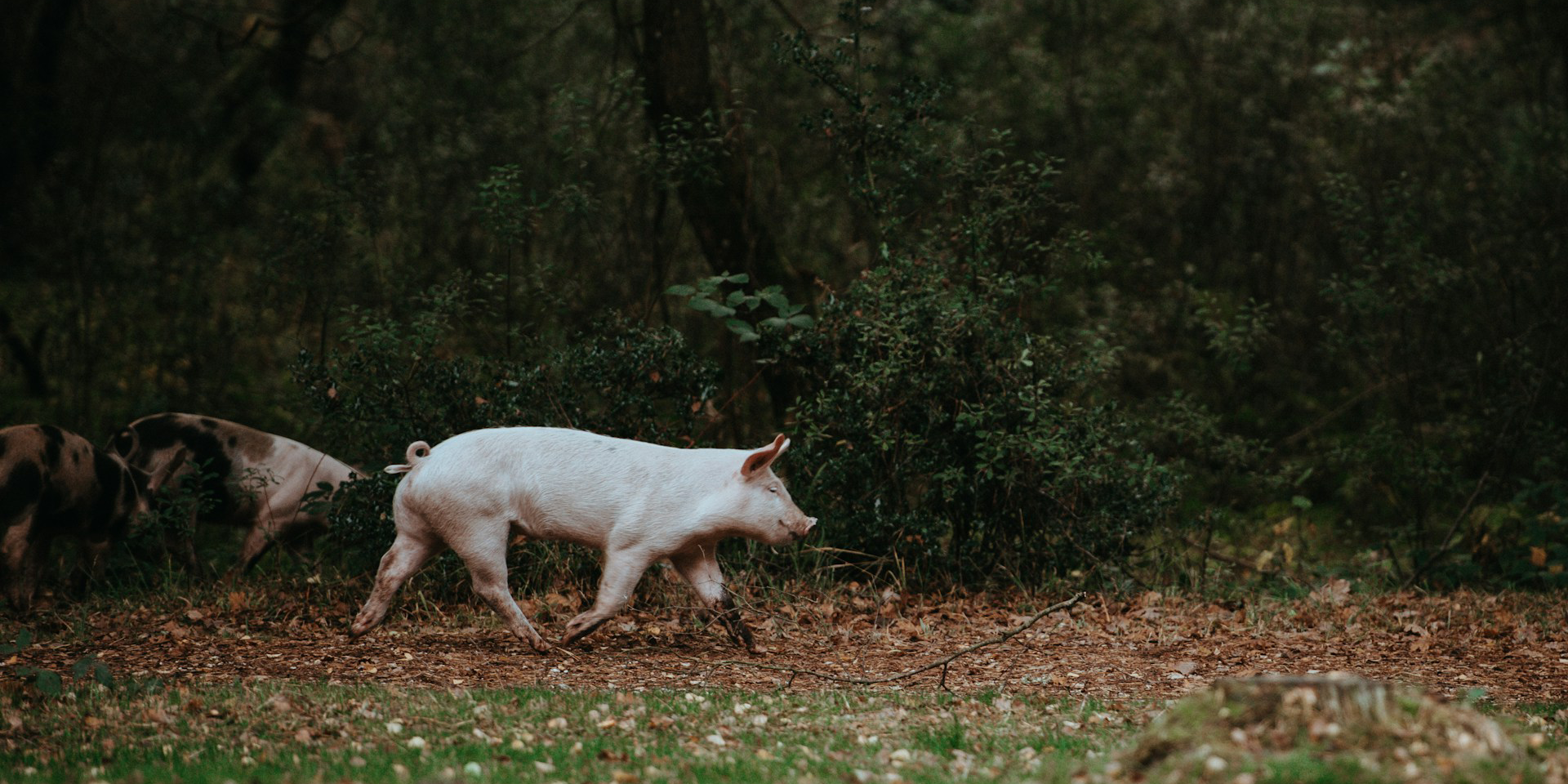
Why you should change your habits for animals this year
Opinion + AnalysisSociety + CultureClimate + EnvironmentPolitics + Human Rights
BY Daniel Finlay 8 JAN 2026
As a 16-year-old, I argued with my vegan friend about the various faults in his logic: how he couldn’t possibly be healthy, how we were meant to eat animals, and all the rest. I never could have imagined how embarrassed it would make me many years later.
I wasn’t particularly familiar with veganism as a teenager, but I have always loved animals. While the fervour to prove it wrong dissipated, my knowledge and exposure to it remained very minimal, like most people’s. A little later, I briefly dated someone who was vegetarian, who inevitably but mostly passively increased my exposure and knowledge. I decided to start looking into the validity of my confident preconceptions and realised that they were either completely unfounded or just exaggerated. It wasn’t many years later when I woke up in the middle of the night and decided that I needed to change my actions.
Veganuary
Coincidentally, 2014 was the year that I began changing my lifestyle to better reflect my values – the same year that a British nonprofit began an annual challenge called Veganuary: a call for people to try eating as if they were vegan for the first month of the year. You sign up for free and are provided with daily emails for a month that include information like recipes, cookbook pages, meal plans and general advice for how to navigate the change in habits.
All of this is well and good if you’re already curious about the idea of reducing your animal consumption, but what if you’re not? Let me try and pique your curiosity.
Why you should care
You might already consider yourself someone who cares. Most people do love animals in theory. If you see an injured bird, a run-over kangaroo, or an abused dog, you’re likely to have a compassionate response. But decades of socialisation, billions of dollars in misrepresentative marketing, and the ever-increasing distance between consumers and production means it’s easier than ever to ignore how our values contradict our everyday actions.
So please indulge me by considering the following responses to common arguments for eating animals.
To begin, let’s get the practical stuff out of the way:
Where will I get my protein? We need meat/dairy/eggs to give us all the nutrients we need.
This argument is as unfounded as it is ubiquitous, and one I wasn’t immune to earlier in my life either. Unfortunately, agricultural lobbying groups are much better at getting into the minds of average consumers, otherwise it would be common knowledge that all major dietetic associations agree on the safety (and benefits) of balanced vegan diets (and all types of vegetarian diets). That’s not to demonise the health of any other kind of balanced diet – you can be perfectly healthy on a regular omnivorous diet – but the ethical argument for showing compassion to animals doesn’t require it to be healthier than eating animals, only that it’s not bad for us. The overwhelming evidence shows that it is not.
The question is not “can I?” but “how would I like to?” That’s why something like Veganuary is such a good introduction, because having the initial support to change your shopping and eating habits makes the transition much easier.
It’s too hard.
Maintaining a balanced omnivorous diet is also too hard for most Australians – doesn’t mean you shouldn’t try! Sometimes we have to do difficult things for our own good or the good of others. You will likely find though, as I did, that the hardest part of changing your lifestyle is the social aspect. People can be judgemental, defensive, aggressive, and downright cruel despite your best attempts to minimise the impact that your choices have on others. Contrastingly, changing habits can be difficult in the short term but they soon become second nature. Staple recipes are easily replaced and substituted with similar-tasting alternatives.
Okay so maybe it won’t make my life worse personally, but it’s so bad for the environment. All those almond trees and soy crops use so much water and cause deforestation. We need animals to feed everyone.
Almond water usage obsession arose initially during the early-mid 2010s Californian droughts, where the majority of the world’s almonds are grown, at a time when almond consumption was skyrocketing. I’m not going to rush to almond’s defense, as we should definitely be prioritising mass consumption of soy and oat milk instead, but if we do want to compare it to the animal-derived alternative then almond is still better, using almost half the amount of water and causing almost five times less CO2 emissions.
The idea that the soy used for soy milk, tofu, tempeh, etc is driving deforestation is another common myth:
“In fact, more than three-quarters (77%) of global soy is fed to livestock for meat and dairy production. Most of the rest is used for biofuels, industry, or vegetable oils. Just 7% of soy is used directly for human food products such as tofu, soy milk, edamame beans, and tempeh.”
Even further than this, the amount of land cleared for cow pastures is over 7 times that for total soy production. If you’re worried about the environment, reducing or eliminating your animal consumption is the best place to start.
I’ve heard that farming vegetables kills more animals (mice, insects, etc) than eating meat, so if we care about animals, we should really keep eating them.
As we’ve seen, most of these crops go to feeding farmed animals, which means that it is still much preferable to consume these crops ourselves, rather than producing magnitudes more to feed other animals to be killed. The same logic applies if you’re someone who would like to argue that plants have feelings, too.
If you’d like to read more about the arguments against veganism, please see here.
Starting the year right
The overarching consideration here from an ethical standpoint is to reduce unnecessary suffering. For me, this comes mainly from a consequentialist perspective. Suffering is bad, we want to see and contribute to less of it. Eating meat, dairy and eggs necessitates immense amounts of unnecessary suffering and death (even if you think killing an animal that lived a good life is okay, we cannot feed the world with that kind of production – factory farms exist to fill the demand). Therefore, we should stop contributing to that demand.
My suggestion isn’t to make a permanent change overnight, but simply to try something new. You can join millions of other people around the world who are trying out a month of reduced animal harm through Veganuary. Or maybe you’re someone who says things like “I could go vegan except I love cheese too much”. Well, use the start of this year to try being vegan except for cheese. You’ll probably find that the hardest part of doing good is taking the first uncomfortable step.

BY Daniel Finlay
Daniel is a philosopher, writer and editor. He works at The Ethics Centre as Youth Engagement Coordinator, supporting and developing the futures of young Australians through exposure to ethics.
Ethics in your inbox.
Get the latest inspiration, intelligence, events & more.
By signing up you agree to our privacy policy
You might be interested in…
Opinion + Analysis
Business + Leadership, Climate + Environment, Society + Culture
Overcoming corruption in Papua New Guinea
Opinion + Analysis
Business + Leadership, Politics + Human Rights
Hunger won’t end by donating food waste to charity
Opinion + Analysis
Business + Leadership, Politics + Human Rights
Ask the ethicist: If Google paid more tax, would it have more media mates?
Opinion + Analysis
Society + Culture, Business + Leadership, Health + Wellbeing
Make an impact, or earn money? The ethics of the graduate job
Who gets heard? Media literacy and the politics of platforming
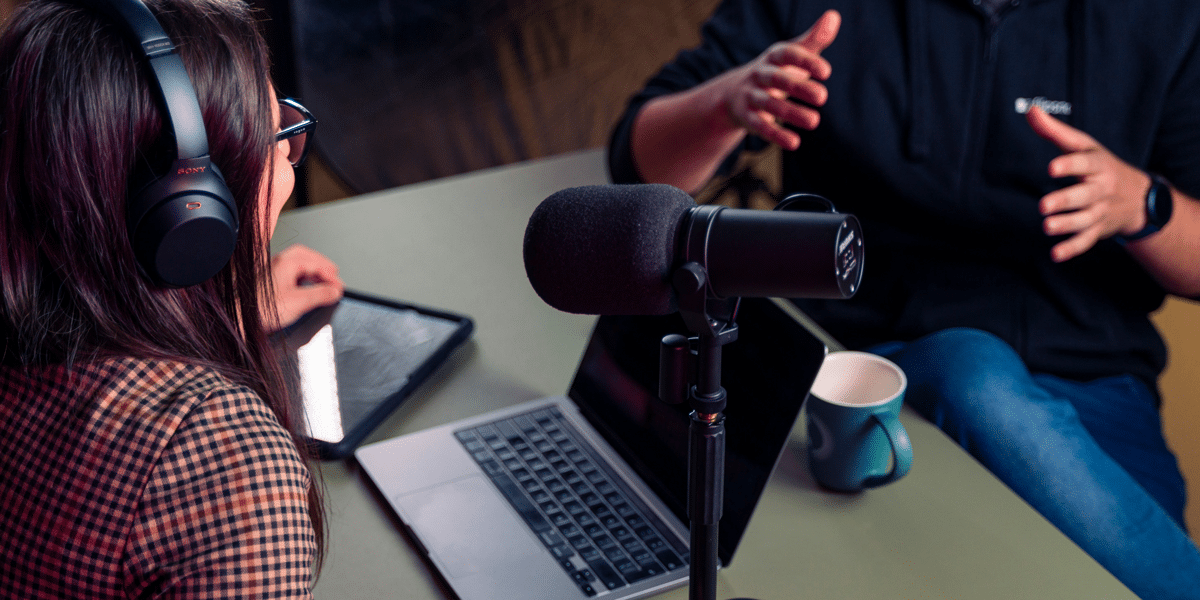
Who gets heard? Media literacy and the politics of platforming
Opinion + AnalysisSociety + CulturePolitics + Human Rights
BY Aubrey Blanche 20 NOV 2025
In an age where emotionally charged information travels faster than ever, the ability to critically evaluate what we read, watch, and share is the cornerstone of responsible citizenship. It’s essential that we’re able to strengthen our media literacy skills to detect bias, maintain trust and safeguard the integrity of public discourse.
Since the rise of generative AI, we have become inundated with content. It’s easier to generate and disseminate information than ever before. When content is cheap, it’s curation and discernment that becomes ever more critical.
And this matters – how information travels influences policy, the bounds of acceptable discourse, and ultimately how our society functions. This means that each of us, whether a social media user, producer of a major national news program, or just someone chatting with a friend, has an obligation to ensure that the truth we share contributes to human flourishing.
What is verifiable?
The reality is that a huge amount of the information we have access to is, well, fake. Media literacy equips people to recognise bias, detect misinformation, and understand the motives behind content creation. Without these skills, we and those around us become vulnerable to manipulation, whether through sensational headlines, deepfakes, or algorithm-driven echo chambers.
Verifying information before sharing is a critical part of media literacy. Every click and share amplifies a message, whether true or false. For example, deepfakes of Scott Morrison and other politicians have been used to perpetuate investment scams. When inaccurate information spreads unchecked, it can fuel polarisation, erode trust in institutions, and even endanger lives. Taking a moment to analyse the source, check for corroboration in other trusted places, and question the credibility of a claim is a small act with enormous impact. It transforms passive consumers into active participants in a healthier information ecosystem.
Whose truth?
What we see as objective is intrinsically shaped by the voices we are exposed to, and how often. This is as true for our social media feeds as it is for the nightly news. The messages that reach us are all in some way biased, meaning that they possess some kind of embedded agenda. But what we most often mean when we talk about bias, is a systematic and repeated filtering or skewing of information to conform to a particular or narrow agenda or worldview.
Because of this, we should be wary of potential bias when issues are covered by individuals or organisations with financial or political interests at stake. For example, jurisdictions around the world are currently wrestling with questions of how training large language models (LLMs) relates to fair use of copyrighted work. In Australia, the government recently ruled out a special exception for AI models to be trained on Australian works without explicit permission or payment. While there was public consultation conducted, prominent voices didn’t all agree with protecting the labor and output of creators as a priority.
Before the federal government made the determination, powerful members of the technology industry were consulted by journalists for their views on how the interests of AI labs and creators should be considered. These voices included those whose financial holdings include investments in the type of AI companies (and their methods) being discussed. Platforming voices with these interests has important implications for setting the terms of the debate as potentially more pro-technology, rather than encouraging a balance of perspectives.
While this specific issue is critical because it’s an issue that affects all of us, it also illustrates a way that we can practice media responsibly.
When we are sharing information, we should consider the interests and ideological alignment of those who are sharing.
Where possible, we should seek to provide a balanced set of perspectives, and ideally one in which any conflicts of interest are clear and disclosed.
Who gets platformed?
There is no free marketplace of ideas. The question of what voices and perspectives are platformed and held up as truth, whether in the media or on our feeds, greatly impacts our our own narratives of events. For example, since October 2023, more than 67,000 Gazans have been killed by Israeli forces. While the genocide has received significant media coverage, the perspectives of people impacted haven’t been equitably represented in mainstream media sources. Recently, a study found that only one Palestinian guest had been booked to share their views on major US Sunday news shows (which set the national agenda) in the last 2 years. In the same period, 48 Israeli guests had been given airtime.
If we assume that Israeli guests do not have a monopoly on the truth, this pattern looks alarming. While this study didn’t speak to the views of the guests, a reasonable person would assume that such a skew in the identities and affiliations represented present a rather one-sided view of events on the ground.
In this case, the platforming also speaks to the relative power of the perspectives. Despite the Palestinian community having the greatest lived experience of harm, their voices are effectively silenced. As we consider from whom we share information, we should always consider the following questions:
- Which individuals or groups have greater access to institutions – media or otherwise – to share their experience?
- In the case of conflict, are opposing forces equally powerful (eg in terms of financial resources, alliances, etc)?
- Who is marginalised, and what is the impact of not platforming that voice?
In today’s media environment, we are flooded with information. This means that the responsibly each of us must take in our sphere of influence has increased proportionally. In order to act as responsible members of our community, we must question which voices we’re highlighting.

BY Aubrey Blanche
Aubrey Blanche is a responsible governance executive with 15 years of impact. An expert in issues of workplace fairness and the ethics of artificial intelligence, her experience spans HR, ESG, communications, and go-to-market strategy. She seeks to question and reimagine the systems that surround us to ensure that all can build a better world. A regular speaker and writer on issues of responsible business, finance, and technology, Blanche has appeared on stages and in media outlets all over the world. As Director of Ethical Advisory & Strategic Partnerships, she leads our engagements with organisational partners looking to bring ethics to the centre of their operations.
Ethics in your inbox.
Get the latest inspiration, intelligence, events & more.
By signing up you agree to our privacy policy
You might be interested in…
Opinion + Analysis
Politics + Human Rights, Relationships, Society + Culture
Of what does the machine dream? The Wire and collectivism
Opinion + Analysis
Politics + Human Rights, Relationships
Whose home, and who’s home?
Opinion + Analysis
Society + Culture, Politics + Human Rights, Relationships
The personal vs the political: Resistance in One Battle After Another
Opinion + Analysis
Politics + Human Rights, Society + Culture
Respect for persons lost in proposed legislation
Big Thinker: Thomas Hobbes
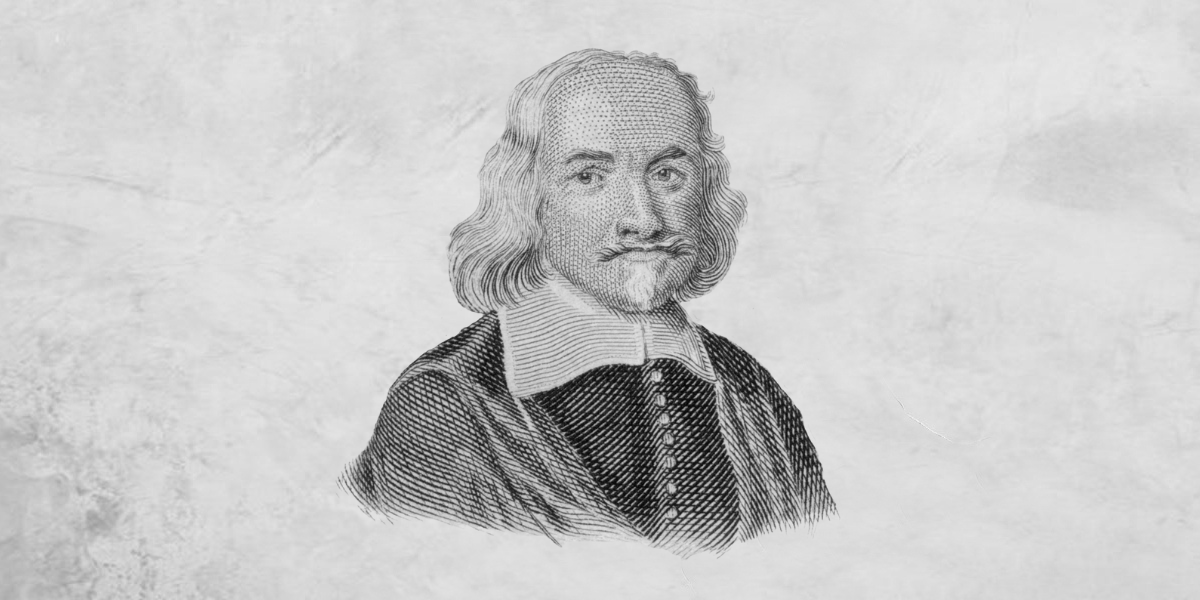
Thomas Hobbes (1588-1679) was an English philosopher, best known for his explanation of the role of government as an insurer of security, which has had an enduring influence on understandings of political philosophy.
Living through the displacement of the English Civil War (1642-1651), Hobbes was grappling with the question of how societies could keep peace and ensure stability, amid conflict and self-interest. The period was marked by social upheaval with the collapse of royal authority, clashes between the government and monarchy and insecurity, which led to him thinking about the manifestations of power, the human condition and the role of government.
His approach to understanding human behaviour was methodical and scientific, being deeply influenced by the scientific revolution of the time. Hobbes believed that human societies, like physical systems, could be understood through cause and effect and that understandings of order and stability were derived from the predictability of human behaviour and power structures.
The state of nature
It was from this historical and intellectual backdrop that Hobbes produced his most famous work, Leviathan (1651). His masterwork Leviathan: The Matter, Forme and Power of a Commonwealth Ecclesiasticall and Civil, garnered him fame for creating what would later become known as the Social Contract Theory, a framework that explains and justifies the exchange that free, equal and rational citizens make in surrendering certain freedoms in return for collective order and protection. This same contract also serves to provide legitimacy to governments and their use of power and authority over citizens.
In Leviathan and his other work, Hobbes disagrees with Aristotle that humans are naturally suited to life as citizens within a state. Hobbes instead argues that humans are not equipped to be rational citizens, as we are easily swayed, often short sighted and highly competitive. He believes these characteristics make humans more predisposed to violence and war rather than political order, with no natural self-restraint. Hobbes states that in this state of nature, without government and order, the life of man is “poor, nasty, brutish and short”, largely due to the insecurity and conflict. Everyone is free and equal, without any rules or restrictions to their actions and coupled with a self interested nature and limited resources, life in this state is a constant struggle.
The social contract
To escape this constant struggle in this state of nature, Hobbes argues that people, through reason, collectively agree to create a social contract. Hobbes believes that political order is only formed when human beings voluntarily give up some of their rights and freedoms, in exchange for order and security from a common authority, the leviathan (a ruler).
Hobbes uses the Leviathan as a metaphor for a powerful ruler or government that embodies the collective will of the people, possessing absolute authority to maintain peace and prevent society from descending back into chaos. Hobbes conception of a social contract and the role of the sovereign or leviathan, refers to these key characteristics:
- The sovereign or leviathan’s power must be absolute – only one authority, as divided power invites factionalism.
- The contract is driven by the purpose of security.
- Individuals cannot revoke the contract once it’s been made, as it would risk bringing back chaos.
- The contract is between the people and the sovereign is not party to this agreement. However, if the sovereign fails to maintain peace and security, the contract loses legitimacy and people return to the state of nature.
This framework for the social contract theory by Hobbes, was adopted by John Locke and Jean-Jaques Rousseau. However, they differed from Hobbes by offering a more optimistic view of human behaviour and the role of government. Critical responses tended to focus on a lack of accountability measures on the leviathan who has expansive absolute power. Locke for example took a liberal view, involving limited government and argued the leviathan was mutually obligated within a social contract, rather than subjects being expected to obey unconditionally to avoid the collapse of civil society.
Hobbes’s ideas continue to shape how government and authority is understood. While very few modern states reflect the vision of an absolute sovereign, the core principles of the social contract theory remain central to political thought. The consent of citizens to be governed in exchange for protection and the rule of law persists. However, in modern liberal democracies, the power of governments is placed under greater scrutiny through constitutions, elections and other checks and balances. Hobbes’s theory provides the foundation for understanding why societies form governments, even as modern democracies reinterpret his ideas to prioritise liberty, representation, and accountability alongside security and order.

BY The Ethics Centre
The Ethics Centre is a not-for-profit organisation developing innovative programs, services and experiences, designed to bring ethics to the centre of professional and personal life.
Ethics in your inbox.
Get the latest inspiration, intelligence, events & more.
By signing up you agree to our privacy policy
You might be interested in…
Opinion + Analysis
Politics + Human Rights, Relationships, Society + Culture
Film Review: If Beale Street Could Talk
Big thinker
Politics + Human Rights, Relationships
Big Thinker: Noam Chomsky
Opinion + Analysis
Politics + Human Rights
How far should you go for what you believe in?
Opinion + Analysis
Health + Wellbeing, Politics + Human Rights, Relationships
